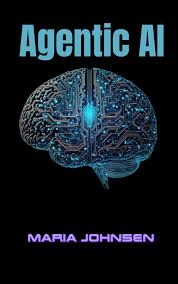Agentic AI: A Revolution in Artificial Intelligence
1. Introduction
This white paper delves into the emerging field of Agentic AI, a paradigm shift in artificial intelligence that moves beyond simple task execution towards exhibiting more autonomous and goal-oriented behavior. We will explore the key concepts, explore potential use cases, and discuss the ethical and societal implications of this transformative technology. This paper is aimed at CEOs, CTOs, engineers, and scientists seeking a deeper understanding of Agentic AI and its potential impact on their respective fields.
2. Defining Agentic AI
Agentic AI refers to artificial intelligence systems that exhibit agency – the capacity to act independently and purposefully towards achieving specific goals. Unlike traditional AI systems that primarily focus on performing specific tasks, Agentic AI systems:
- Possess autonomy: They can operate independently, make decisions, and take actions without constant human intervention.
- Exhibit goal-directed behavior: They are driven by internal or externally defined goals and actively pursue strategies to achieve them.
- Demonstrate adaptability: They can learn from their experiences, adapt to changing environments, and modify their behavior accordingly.
- May exhibit proactiveness: They can anticipate future events, plan ahead, and take initiative to achieve their objectives.
3. Key Concepts in Agentic AI
- Reinforcement Learning: A crucial aspect of Agentic AI, where agents learn to make decisions by interacting with an environment and receiving rewards or penalties for their actions.1
- Planning and Decision Making: Agentic AI systems must be able to plan and make decisions effectively, considering potential outcomes and choosing the most optimal course of action.
- Embodied AI: Integrating AI with physical bodies (robots, drones) allows for more complex interactions with the real world and facilitates learning through physical experience.
- Emergent Behavior: The emergence of complex behaviors from simple interactions within a system, often observed in multi-agent systems.
4. Use Cases of Agentic AI
- Robotics and Automation: Developing autonomous robots for various applications, such as manufacturing, logistics, and exploration.
- Autonomous Vehicles: Enabling self-driving cars to navigate complex traffic situations, make real-time decisions, and ensure passenger safety.
- Healthcare: Developing AI-powered personal health assistants that can monitor patient health, provide personalized recommendations, and even assist in medical procedures.
- Business Operations: Automating business processes, optimizing supply chains, and providing personalized customer service experiences.
- Scientific Research: Accelerating scientific discovery through autonomous experimentation, data analysis, and hypothesis generation.
5. Ethical Considerations
- Safety and Control: Ensuring the safety and control of agentic AI systems is paramount, especially as they become more autonomous and powerful.
- Bias and Fairness: Addressing potential biases in AI systems and ensuring that they are used in a fair and equitable manner.
- Transparency and Explainability: Understanding the decision-making processes of agentic AI systems is crucial for building trust and ensuring accountability.
- Job Displacement: Evaluating the potential impact of agentic AI on employment and developing strategies for mitigating job displacement.
- Existential Risks: Considering the long-term implications of advanced AI, including the potential for unintended consequences and the need for responsible development.
6. Key Resources
- Books:
- "Artificial Intelligence: A Modern Approach" by Stuart Russell and Peter Norvig
- "Superintelligence: Paths, Dangers, Strategies" by Nick Bostrom2
- "Life 3.0: Being Human in the Age of Artificial Intelligence" by3 Max Tegmark
- Research Papers:
- "Reinforcement Learning: An Introduction" by Richard S. Sutton and Andrew G. Barto
- "Deep Reinforcement Learning: An Introduction" by Richard S. Sutton and Andrew G. Barto
- "Artificial General Intelligence: Pathfinding Through the Labyrinth" by Ben Goertzel
- Organizations:
- OpenAI
- Google AI
- DeepMind
- Association for the Advancement of Artificial Intelligence (AAAI)
7. Conclusion
Agentic AI represents a significant milestone in the evolution of artificial intelligence. While challenges and ethical considerations remain, the potential benefits of this technology are immense. By fostering responsible research and development, and by carefully considering the societal and ethical implications, we can harness the power of Agentic AI to create a better future for humanity. contcat ias-research.com for details.
Disclaimer: This white paper provides a general overview of Agentic AI. The specific applications and implications of this technology will continue to evolve rapidly.
This information is for general knowledge and informational purposes only.



